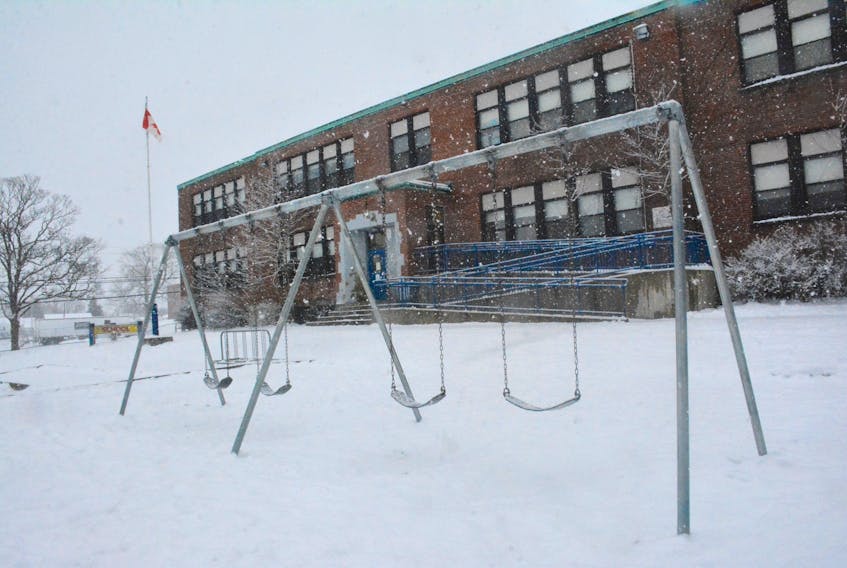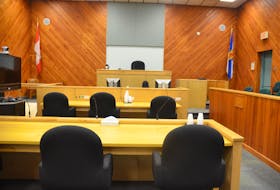YARMOUTH, N.S. – When it comes to bad weather, no announcement is anticipated as much as school cancellations.
Have they cancelled? Haven’t they?
It’s what everyone wakes up wondering, after going to sleep the night before often guessing which direction they think the decision will go.
And when that decision is announced – depending on the circumstances and the decision – it can be greeted with a multitude of responses (which also may depend on your age) that can range from joy, relief, surprising, not suprising or bewilderment.
So how do school boards reach the decision of whether to cancel school?
“A number of people are involved in that decision. It’s not one individual making the call, but a number of people from a number of locations around the board,” says Paul Ash, superintendent of the Tri-County Regional School Board.
EARLY START TO PROCESS
In instances when bad weather is forecasted, at the Tri-County Regional School Board – and the process is similar for all boards – the process of determining if school will be cancelled is well underway before 5 a.m. By then the board’s co-ordinator of transportation is already monitoring the weather forecasts. If a storm has been forecasted for days, this monitoring has likely been happening for days too.
“If there is going to be a storm, we have a conference call with meteorologists, all school boards. We go through all of the weather conditions. The conference call starts at 5 a.m.,” says Steve Stoddart, the Tri-County board’s director of operations.
Stoddart says if school is going to be cancelled, it’s a decision that has to be made by 5:30 a.m.
“We’ll weigh all of the weather conditions, then our co-ordinator of transportation and our operations department will make a recommendation to the superintendent to stay open or close,” Stoddart says, adding there is also dialogue taking place with other boards to see what they’re doing.
If the decision is made to close, media notifications go out between 5:30 and 6 a.m. for the information to be distributed to the public and the info is posted on the board’s website.
Obviously the board doesn’t announce every day that school is open. So if you think they weather is iffy, and you’re in doubt of whether school is on or not, check your clock. If it’s past 6 a.m. and there’s been no communication from the school board that schools are closed, then count on the fact that the schools are opening at their normal time, the board says.
“Unless something has gone awry with power or technology, we always let people know by 6 a.m.,” says Trevor Cunningham, the board’s director of programs and student services.
COUNTY CLOSURES
The board may also just close a portion of the region it covers if one area is going to be hit by bad weather but another is not. However, this can’t be done on a school-by-school basis.
“We have to close a whole county,” says Stoddart. “So even though one part of the county may be fine, we have to shut down the whole county.”
Other times the board will close schools in the morning due to “pending” weather – particularly what conditions will be like when buses would be bringing students home in the afternoon.
“We’re looking at what the weather it going to be like after 2 p.m.,” Stoddart explains. But even that’s not a perfect science.
He says sometimes the decision may be made in the morning to stay closed all day if the weather in the afternoon is going to be severe, which may leave people wondering why students didn’t go to class for at least part of the day. On Jan. 17 the Tri-County board – and other boards throughout the province – had children go to school in the morning, opting instead for a three-hour early dismissal. But early dismissals don’t always work out, Stoddart notes, saying there have even been times when they’ve done an early dismissal and have gotten hit with the bad weather while the buses were taking students home.
Other times school may be cancelled for the entire day and the bad weather that had been expected never materializes, which can leave people scratching their heads.
Even the school board acknowledges that its decisions will never be met with 100 per cent agreement, particularly when they have to be made so early in the morning.
In 2015, the Tri-County board conducted a public survey seeking feedback on its approaches to school closures, which included the option of a delayed start to the school day when the weather is bad early in the morning but may improve later on. Of those that responded to the survey, that scenario received a very strong thumbs down.









